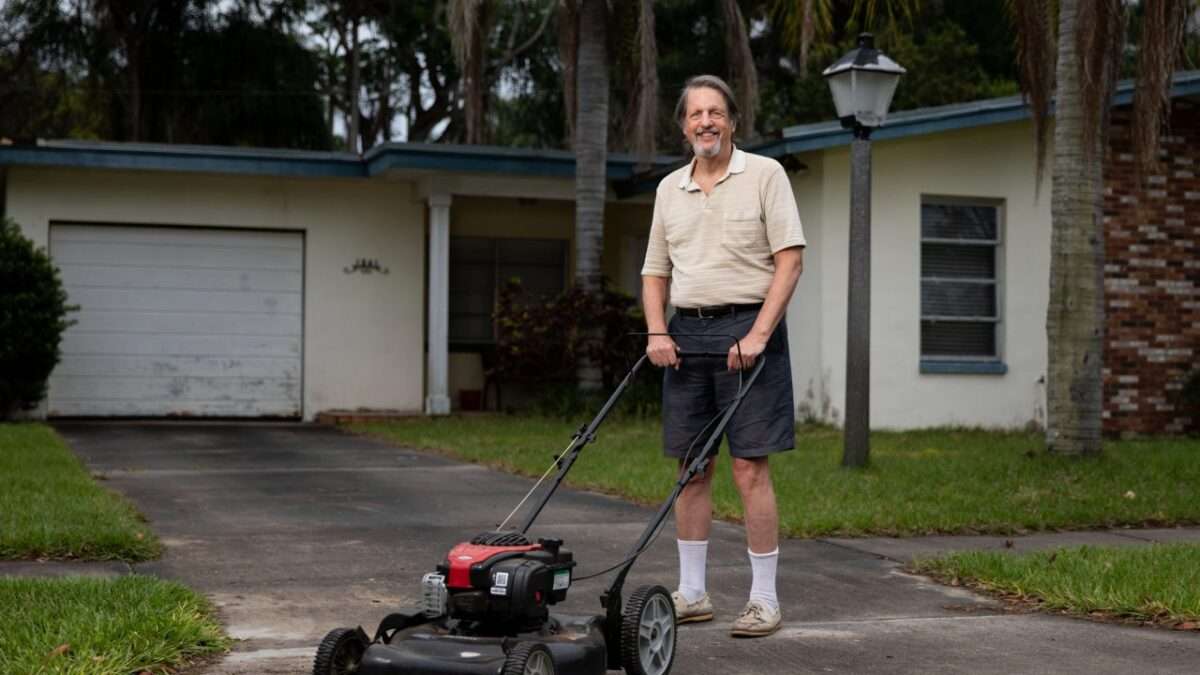Florida Man's Tall Grass Saga Comes to an End

Retiree Jim Ficken can finally breathe easy. After six years, two lawsuits, and harrying legal wrangling over a $30,000 fine for tall grass in Dunedin, Florida, a new settlement has brought him closure.
The agreement, announced on April 22, ends the city's pursuit to recover $10,000 in attorney fees that Dunedin officials tried to characterize as "administrative expenses" after reducing Ficken's original fine by 80 percent. The reduction was only possible because of reforms the city instituted soon after Ficken filed his first lawsuit.
Initially, the city attempted to tack on $25,000 for out-of-pocket legal expenses before realizing it had miscalculated that figure. As a result of this settlement, Ficken will not have to cough up any amount for bogus fees—an important consolation following setbacks in his first lawsuit.
Ficken attempted to reason with code enforcers before going to court—explaining that his lawn had grown long while he was settling his late mother's estate in South Carolina and that the landscaper he had hired to mow his grass while he was gone had died unexpectedly. He asked for leniency, but the city refused to budge and insisted on full payment: $500 per day for nearly two months, plus interest. They even put liens on Ficken's home and authorized city attorneys to initiate proceedings to seize it.
In response, Ficken filed a federal lawsuit with representation from the Institute for Justice, asserting that the excessive fines and lack of due process violated his Eighth and Fourteenth Amendment rights. He lost in district court in 2021 and again in 2022 at the 11th Circuit Court of Appeals—but he won in other ways. His case ignited a media frenzy and public calls for reform, prompting Dunedin to overhaul its code enforcement regime to prevent ruinous fines for trivial offenses.
After his legal battles, Ficken managed to get the fines reduced enough to prevent foreclosure. He thought he was safe. But then the city hit him with the bill for attorney fees, a retroactive attempt to penalize him for seeking his day in court. Left with no choice, he sued again in 2023.
The city could have avoided both lawsuits merely by treating Ficken like a neighbor instead of a cash machine.
While Ficken acknowledged his breach of a city ordinance and expected some penalty, Dunedin's aggressive tactics—aiming to extract tens of thousands of dollars and take his home—were blatantly excessive. American jurisprudence dictates that punishment must fit the crime. Municipalities must balance code enforcement with common sense and respect for property rights.
Dunedin moved in the right direction by making adjustments to its policies; however, the problem of excessive fines and fees is not confined to Dunedin—it is a national issue.
Across the country, similar stories of overzealous code enforcement abound. In Lantana, Florida, homeowner Sandy Martinez was fined more than $100,000 for parking violations on her own property. In Doraville, Georgia, Hilda Brucker was criminally prosecuted for having cracks in her driveway. And in Pagedale, Missouri, Valerie Whitner had to pay a fine for not having a screen on her back door.
Florida demographics create additional pressures. Many residents are retirees on fixed incomes living in single-family housing. People like Ficken have a right to stay, but some officials would prefer younger, more affluent taxpayers in their communities. Aggressive code enforcement is one way to target less desirable residents.
Sometimes enforcement is about preserving a certain aesthetic, as seen in Miami Shores, Florida in 2013. Officials declared vegetable gardens unsightly and threatened Hermine Ricketts and Tom Carroll with daily fines if they did not remove their front yard vegetables.
Regardless of motive, cities and towns must exercise restraint. The Constitution sets the baseline, and without it, abuses can and will grow quickly out of hand, and tall grass will be nothing in comparison.
The post Florida Man's Tall Grass Saga Comes to an End appeared first on Reason.com.



